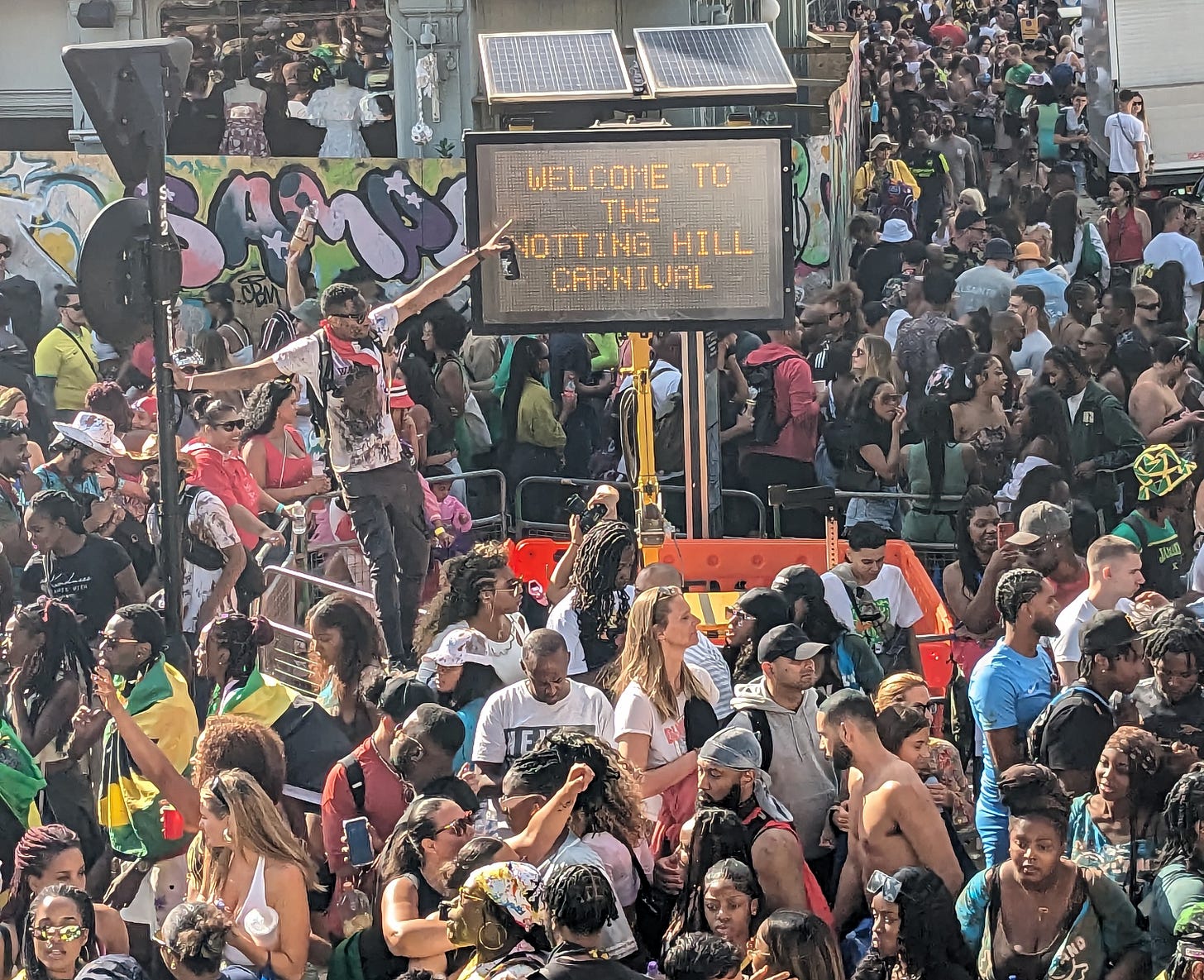Live facial recognition has no place at Notting Hill Carnival
The Met Police is pushing ahead with plans to use divisive LFR at Notting Hill – it's another terrifying slide towards state surveillance. Plus: Zoë Grünewald on Epping decision + latest ReformWatch.
Notting Hill Carnival has been over-policed and subject to unwarranted scrutiny for decades. Year after year, the UK’s largest street festival is policed as though it is a threat, not a celebration, and viewed through a prism of inherent criminality – simply beca…





